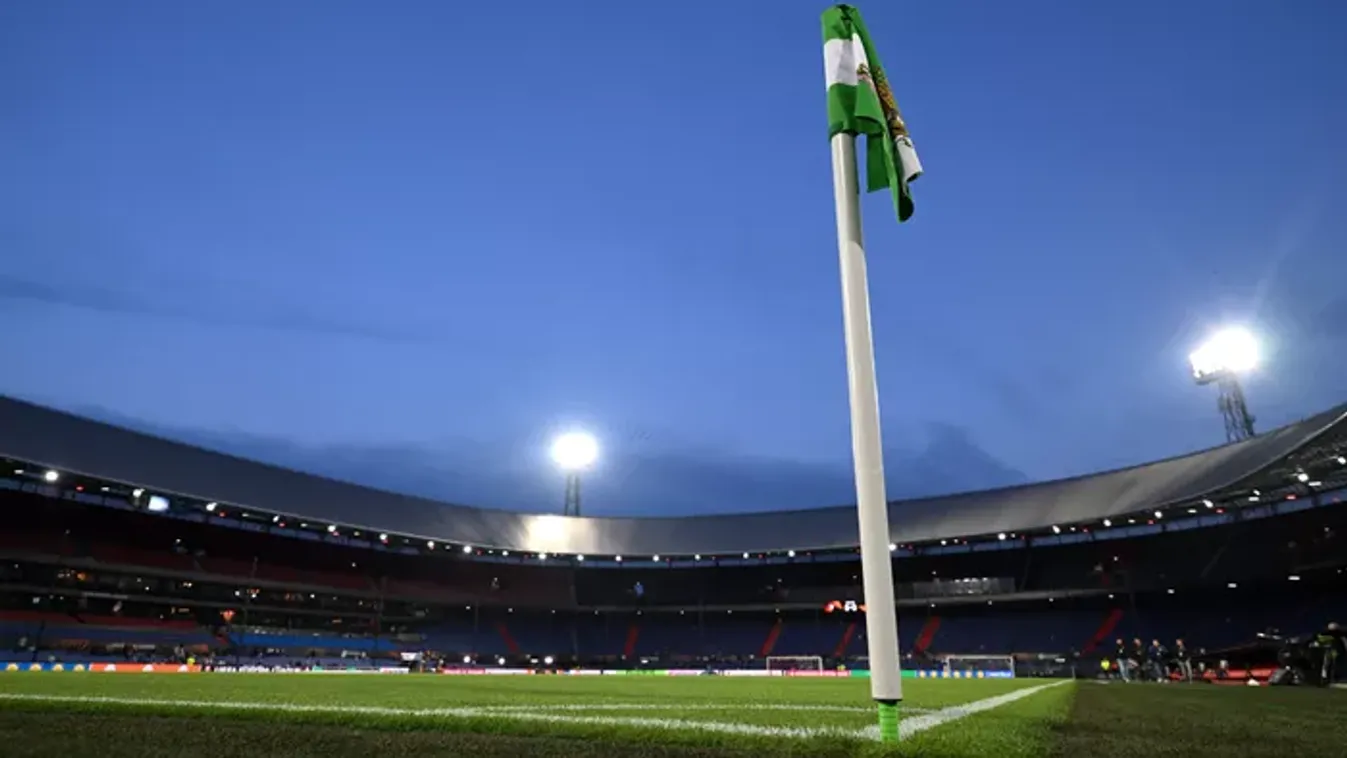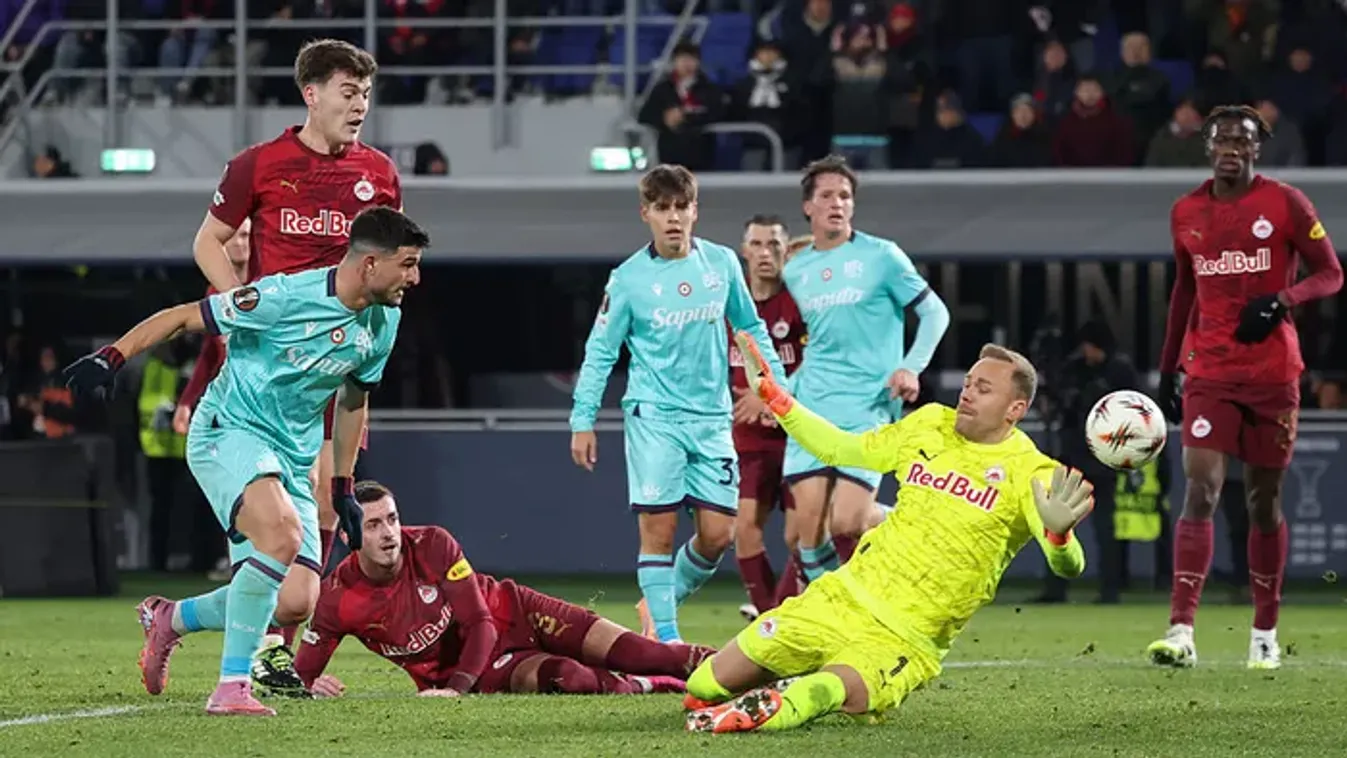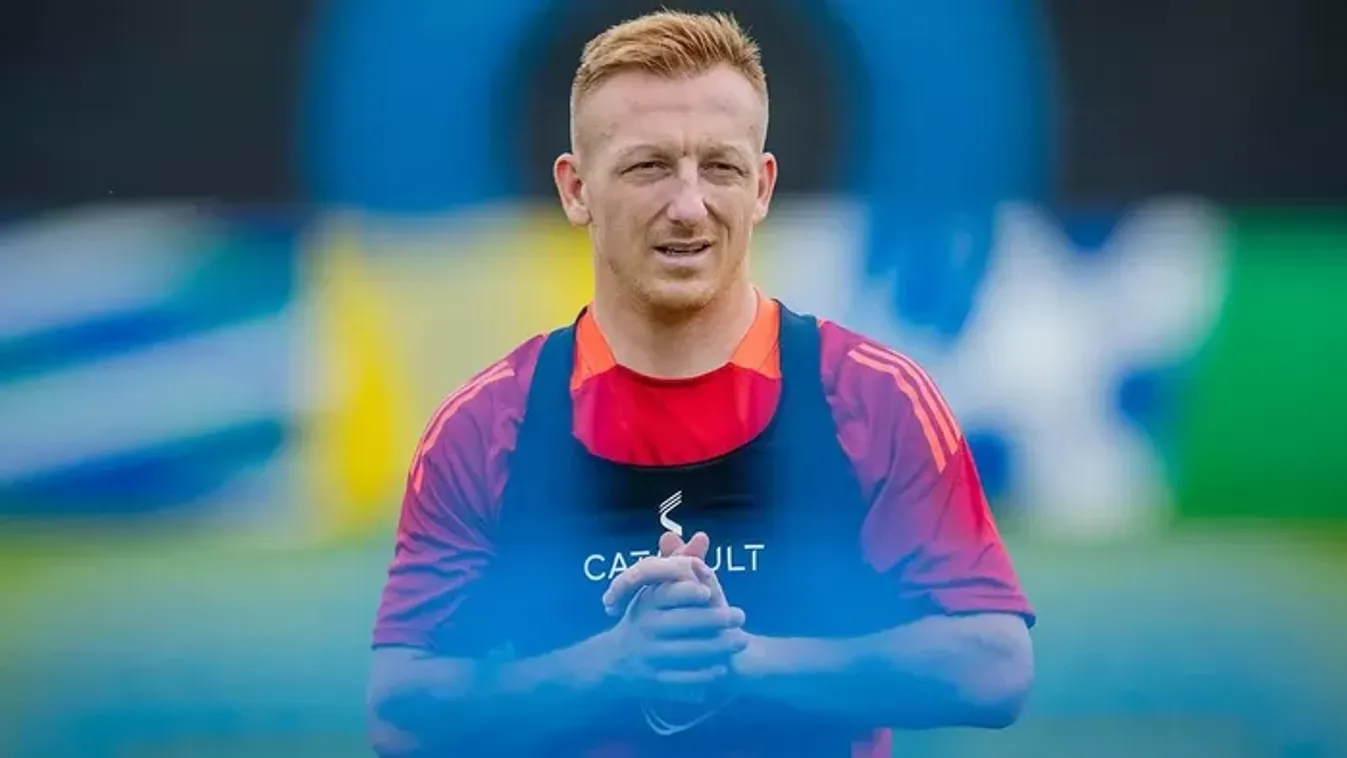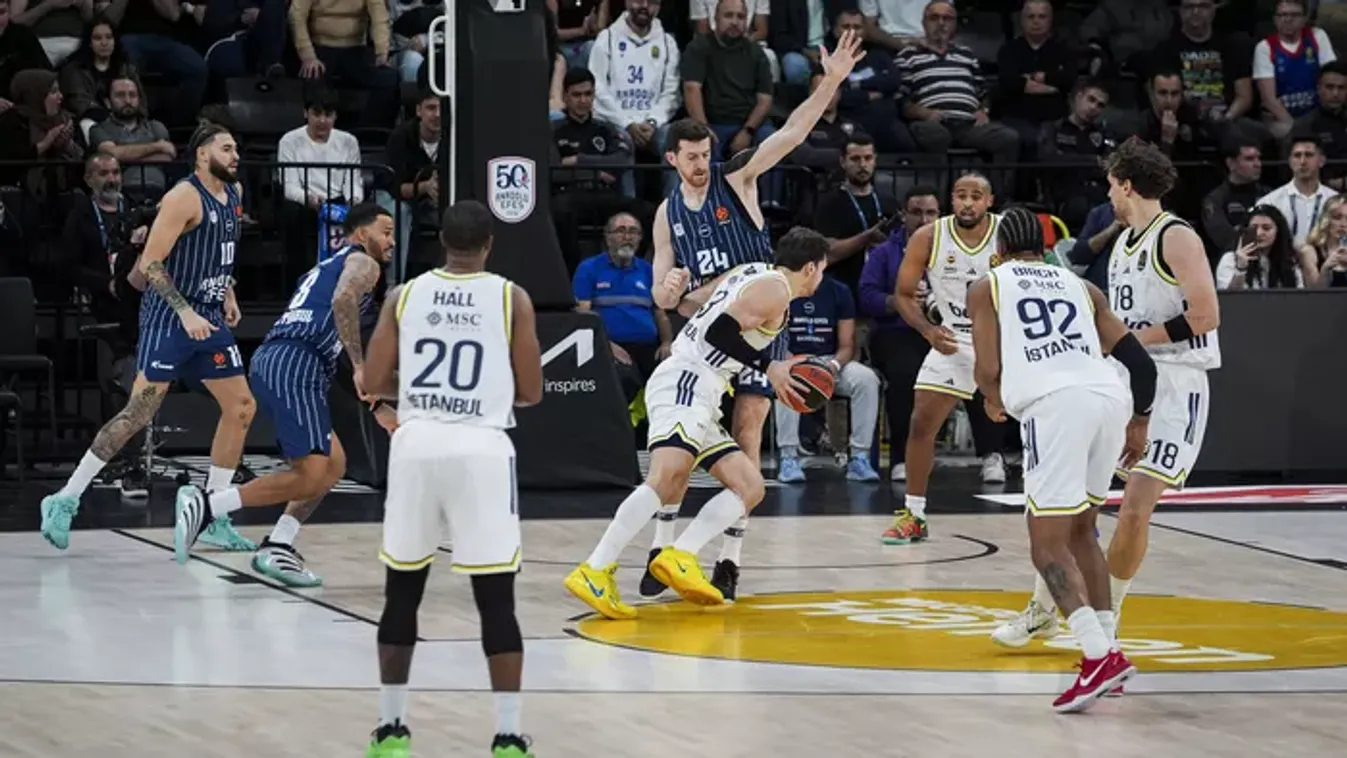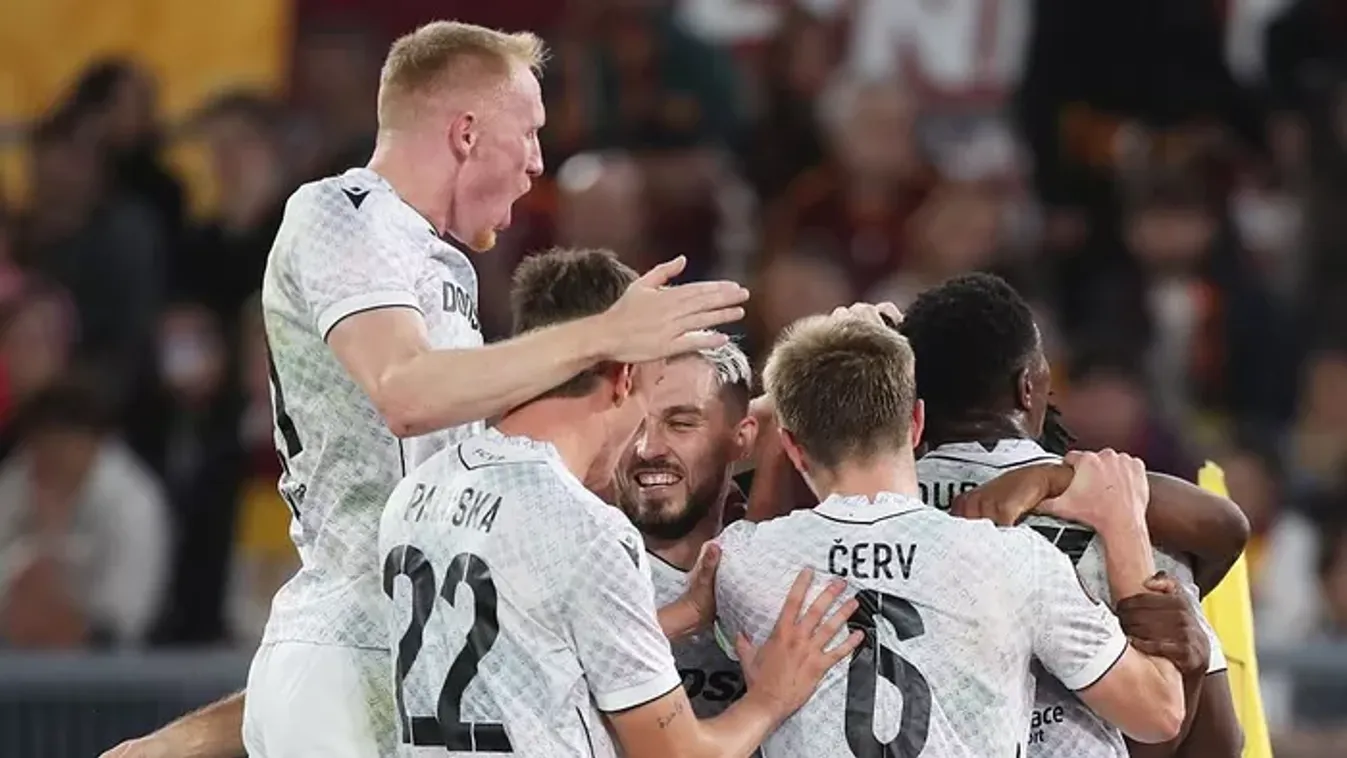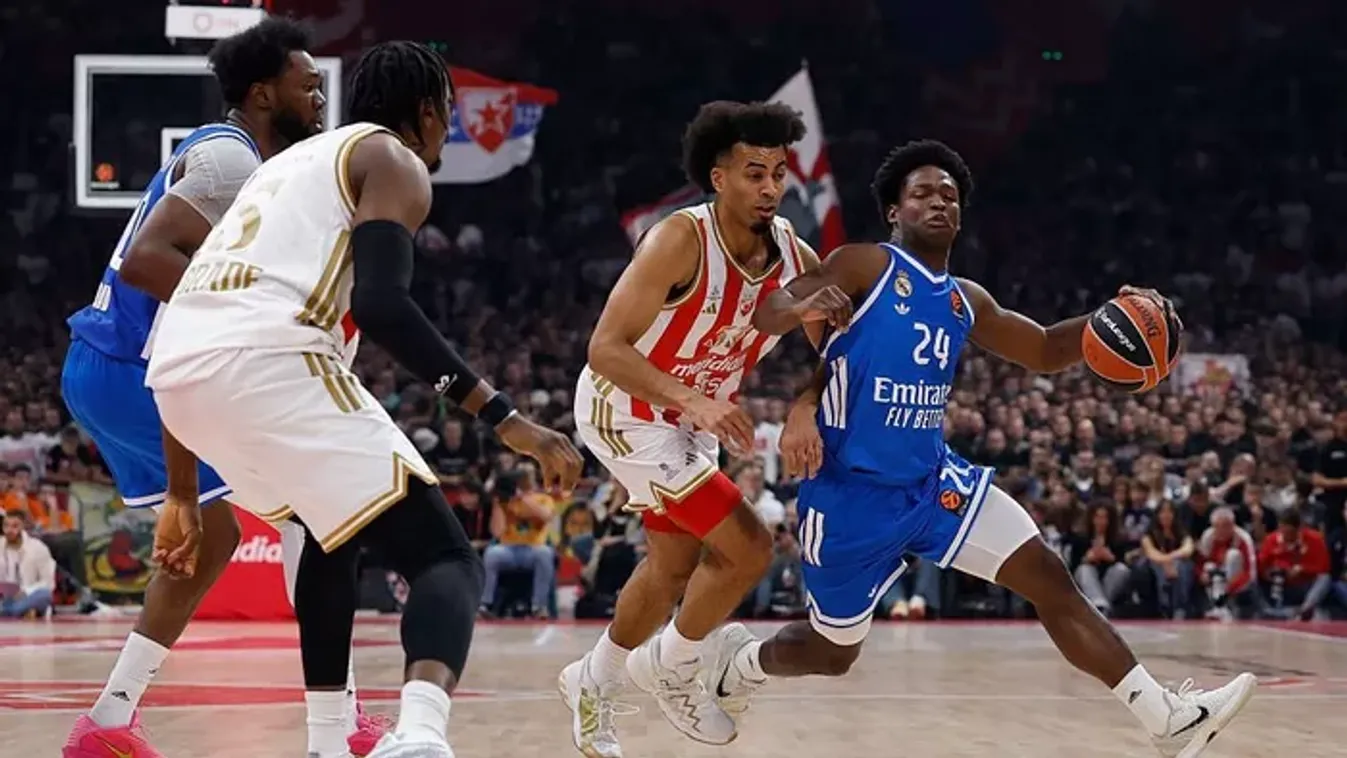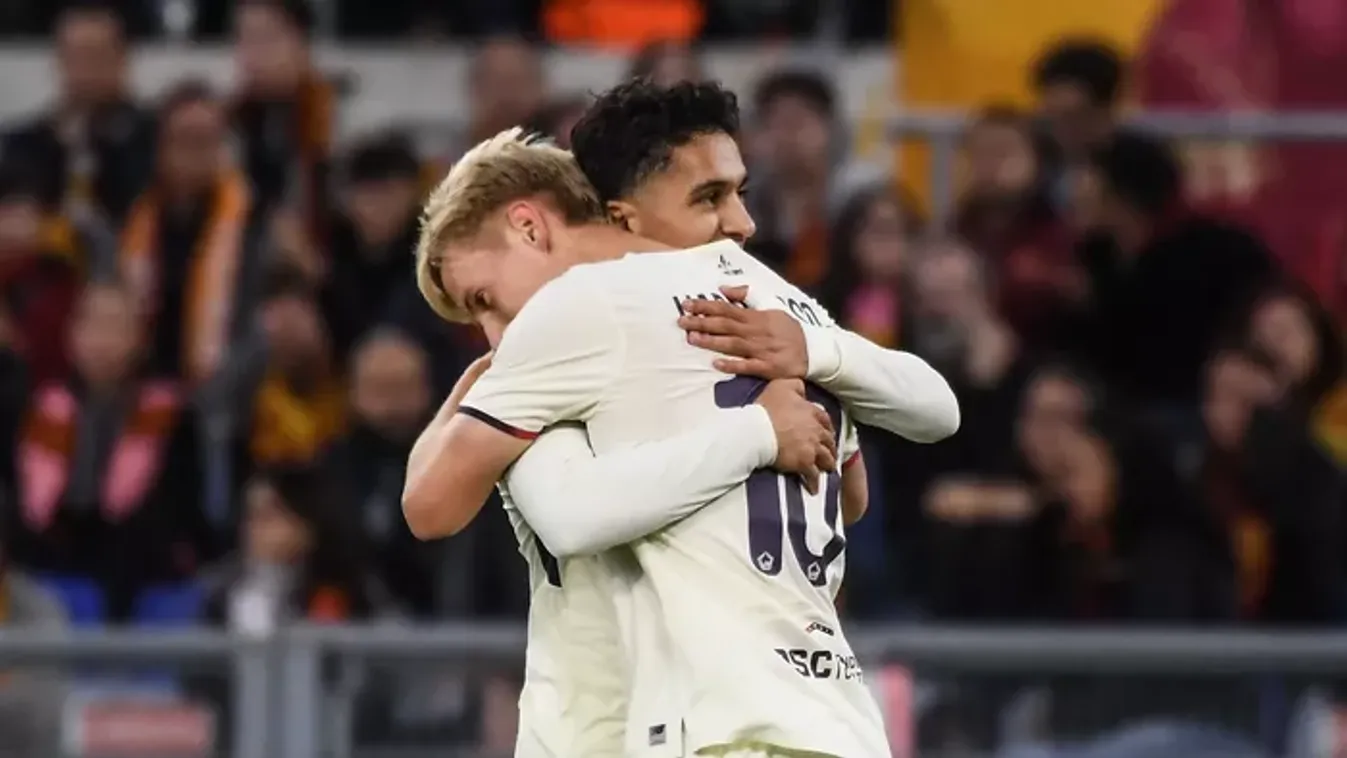László Kleinheisler could follow in the footsteps of Ferenc Puskás in Athens
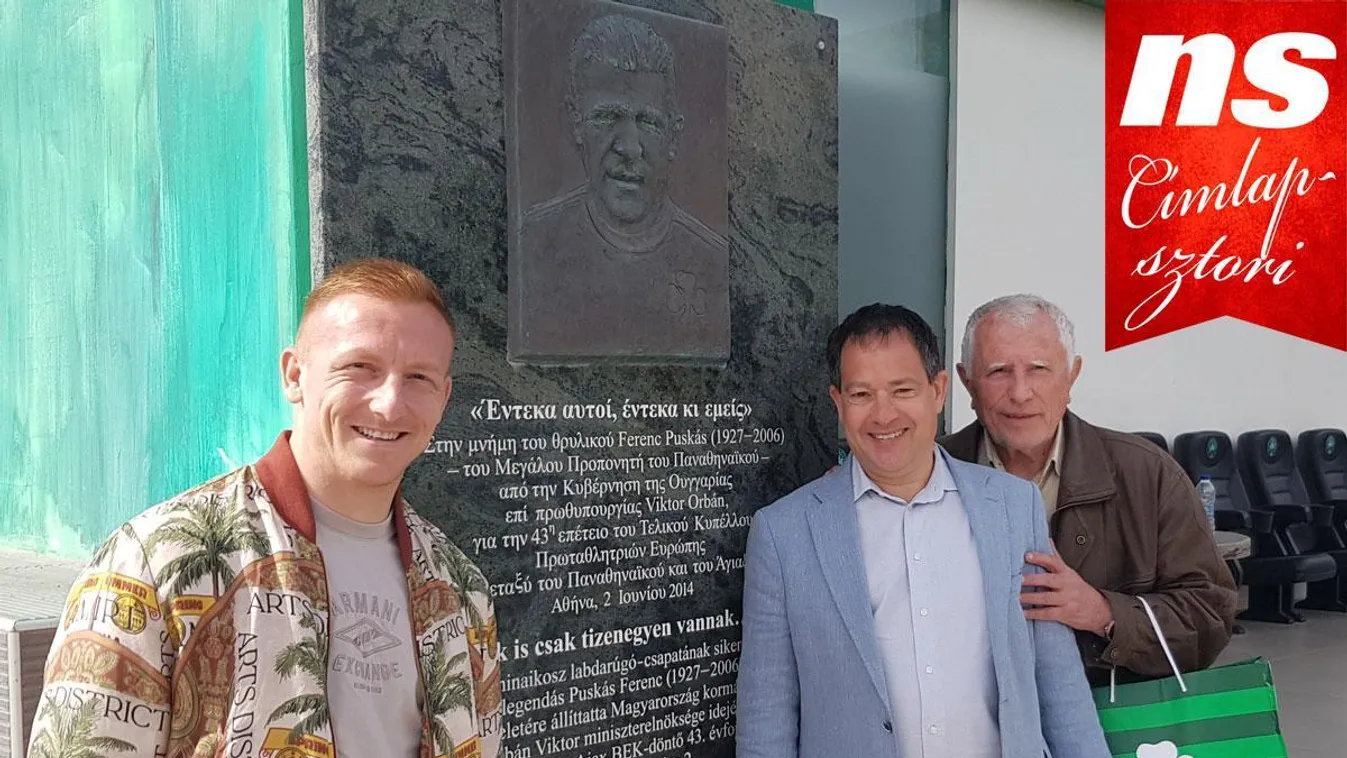
WHEN GYULA LÓRÁNT, the legendary defender of the Golden Team, was coach of PAOK in the 1970s, in response to a question from a newspaper, he described his life in Greece as follows: "My name is Lorantidis now. While having breakfast, I look at Mount Olympus and talk to Zeus." In fact, in the land of Zeus, most Hungarian footballers who played in Greece, especially before 1990, from Lajos Détári to Imre Boda and Márton Esterházy, were regarded almost as gods. Now, another Hungarian player has been given the chance to rise to Olympian heights: after four years in Osijek, 44-time national team midfielder László Kleinheisler signed for the prestigious club Panathinaikos in Athens in January this year.
A THUNDEROUS APPLAUSE FROM THE FANS OF SECTOR 13
Little did he know thirteen years ago, in 2010, when he stepped on the pitch as the host against Panathinaikos at the prestigious U17 international tournament, the Puskás-Suzuki Cup in Felcsút, that one day he would be kicking the ball for that team. Panathinaikos, under coach Ferenc Puskás, had achieved the greatest success in its history, the Cup Winners' Cup appearance in 1971. Uncle Öcsi took over as head coach of the Athens Greens and Whites in 1970, and he led the completely amateur side to the final of the most prestigious European Cup on his first attempt. No Greek club had and has ever played in a European final before or since. They also eliminated English champions Everton, then defeated Yugoslavian team Crvena Zvezda 3-0 at home after the 4-1 loss in Belgrade. Only Johan Cruyff's classic Ajax could stop them in the Cup Winners' Cup final (2-0) held at Wembley in London.
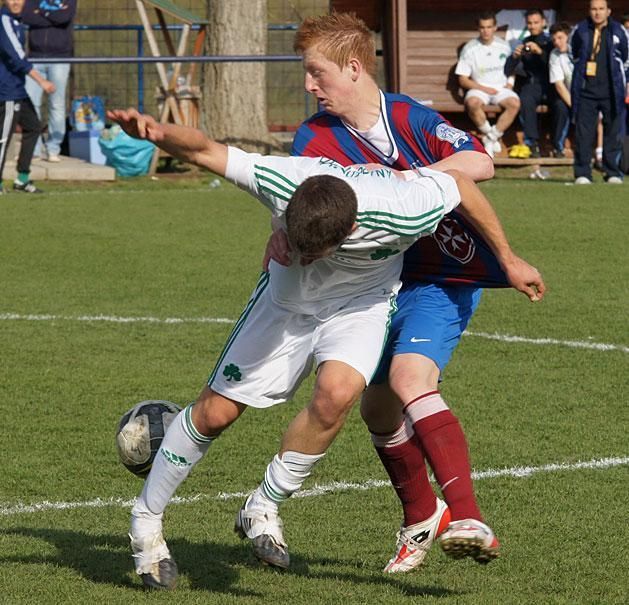
László Kleinheisler's transfer and the desire to explore the sites of football history were enough of an attraction for us to get on a plane and spend a few days with the national team player, to get to know his training and living conditions, to get a glimpse of his family life and to see what reminds us today in Athens of Ferenc Puskás' successful team from fifty-two years ago.
We were hoping to see the red-haired, feisty Hungarian midfielder on the pitch, because the program included a league match against Panathinaikos Panetolikos on March 6. An important match was waiting for Pana that could regain its first place in the table if the team won. It is true that each game this season is of particular importance for the 20-time champions, who have been waiting for another title for thirteen years and have not even reached the podium since 2017. Now, however, under Serbian head coach Ivan Jovanović, they have every chance of winning gold, which is why the Hungarian midfielder was among the players added to the squad this winter. Laci promised to try to score a goal in our honor, but he was not included in the starting line-up. In three league games, he has played a total of eighty-six minutes, starting only once, and he found the net after fourteen minutes against Lamia. However, luck was not on his side; he had COVID immediately after his arrival, missed a week of training, and was due to start against Volos, but he strained his muscle during warm-up. This time, he came on in the 72nd minute of the match they won 2-0, replacing the only goal scorer, Argentina's Daniel Mancini. It is clear that fans like him already: when he was warming up, the fans in section B sector 13 cheered him on loudly on several occasions, and when the coach told him to go play, the decision received a round of applause from the spectators.
"It will be good, I will be fine,” Laci told us after the match. “I'm not in my best physical condition after the illness and the injury, but as I catch up more and more, I will get better match by match. The coach also talks to me often, he always encourages me and says he is counting on me."
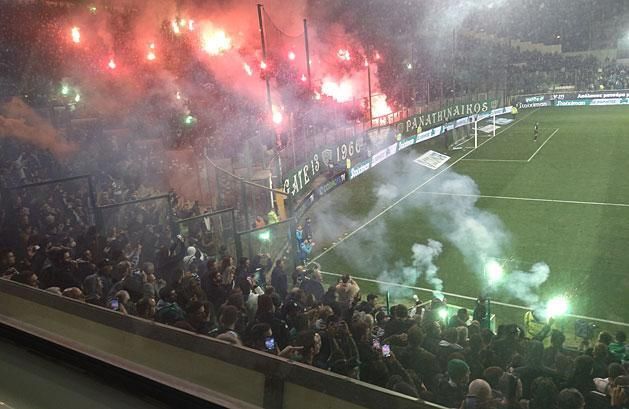
THE NEW ARENA HAS BEEN ONLY A PROMISE FOR FORTY YEARS
The fans will have nothing to worry about when it comes to cheering; Pana supporters are notoriously fanatical, and the stadium of 15,000 is usually packed against Panetolikos. Panathinaikos is traditionally a team of the citizens of Athens, and when they play against Olympiacos Piraeus or AEK, the team of immigrants, the situation is always risky. However, a “normal” match against Panathinaikos is as well secured by the police as a Fradi-Újpest game in Hungary. Greek fire is not banned in Greece, and even during the mourning break before the game, the ultras in section 13 were making so much fire and smoke that the visibility on the pitch was limited for minutes. The Hungarian Football Federation would close the stadium for a year or so for such fireworks, but here it is still a natural part of the show.
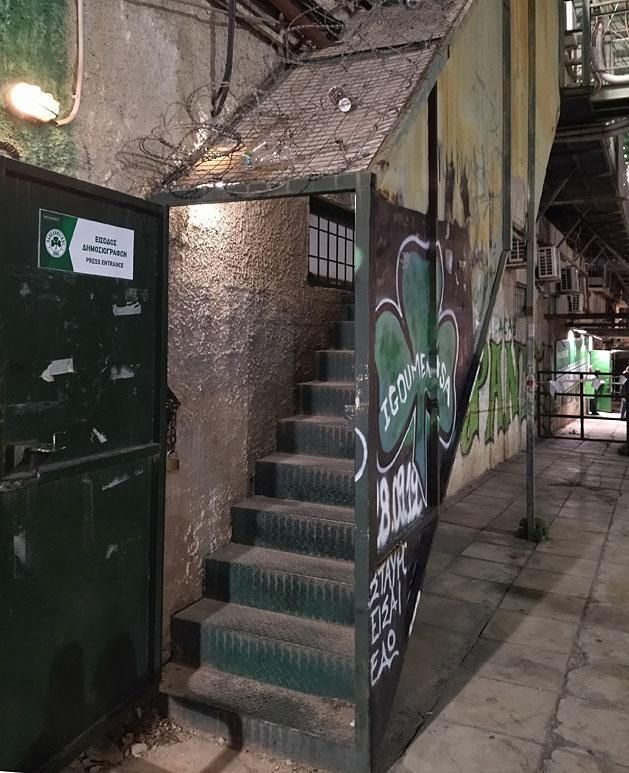
The pace of the match is faster than it usually is in NB I, but there are some things that Panathinaikos can envy the Hungarian clubs for. The Apostolos Nikolaidis Stadium is a legendary place and has a captivating atmosphere. However, the building from 1923 is a century old, has been patched up several times, has seen its fair share of time, and is hardly up to the standards of a modern arena. Even the NB III teams in Hungary have stadiums in better conditions. The media entrance is essentially an iron box with barbed wire on top to prevent people without tickets from climbing in, the mixed zone is disappointing, and the team buses, for example, can only stop just for a time long enough for players to jump out of them because of the lack of space. Five years ago, the team moved to the Olympic Stadium - where it had played four previous seasons - in anticipation of a new stadium but plans for a new stadium are always thwarted by an economic crisis or a pandemic, so they moved back here in 2020. As one fan tells us: for 40 years, every president has promised a new arena, but presidents come and go and still no new stadium. We also had a goal to visit the club museum, where we can look for Hungarian relics, but there is no club museum at the moment because the relics are resting in boxes and warehouses due to frequent moves.
THE MEMORIAL PLAQUE IS NOT GATHERING DUST IN A WAREHOUSE
What is clear is that the Puskás team is still the most important representative of the club's identity. The team photo of 1971 is painted on the stadium wall and the fan gift shop, the products are sold in a bag with the words “Wednesday, June 2, 1971” (the day of the Cup Winners' Cup final in London), and the handle is also decorated with a replica of the Wembley ticket from the same year.
Nonetheless, the memorial table of Ferenc Puskás cannot be found in the Apostolos Nikolaidis Stadium. As a reminder: on June 2, 2014, on the 43rd anniversary of the Cup Winners' Cup final, the Hungarian government placed a marble plaque on the stadium wall, unveiled jointly by Prime Minister Viktor Orbán and Ferenc Puskás's widow, Mrs. Erzsébet. There was also a U17 match that day between Panathinaikos and Puskás Akadémia youngsters, with Roland Sallai, who, like László Kleinheisler, has since become a senior national team player, scored a memorable goal from the center circle. When the team temporarily moved, the nameplate was taken down, but it was not put back up when the team returned. We were told that it will be replaced in the new stadium - if there will ever be a new stadium.
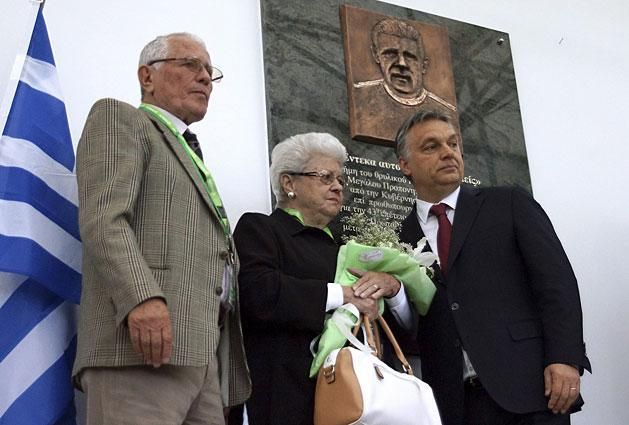
The club's number one training center, named after Jorgos Kalafatis, is where we meet László Kleinheisler for the interview, and will be joined by László Szoldatits, the consul in Athens. On the one hand, he will take us to the rather wild suburb of Koropi, dotted with packs of stray dogs and half-finished houses, perhaps half of them built without permission, to meet the national team player in person and offer his help. On the other hand, he wants to check on the Puskás memorial plaque which is rumored to be kept in the training center's warehouse. It is also close to László Szoldatits's heart because it is Hungarian state property.
Fortunately, we were soon convinced that the Puskás monument was not gathering dust in a warehouse but adorning the outside wall of the training center – this is the first thing players would see on their way from the car park to the dressing rooms. We take some photos right away, so we can get into an even better mood for the interview with László Kleinheisler, whose family we'll also get to know.
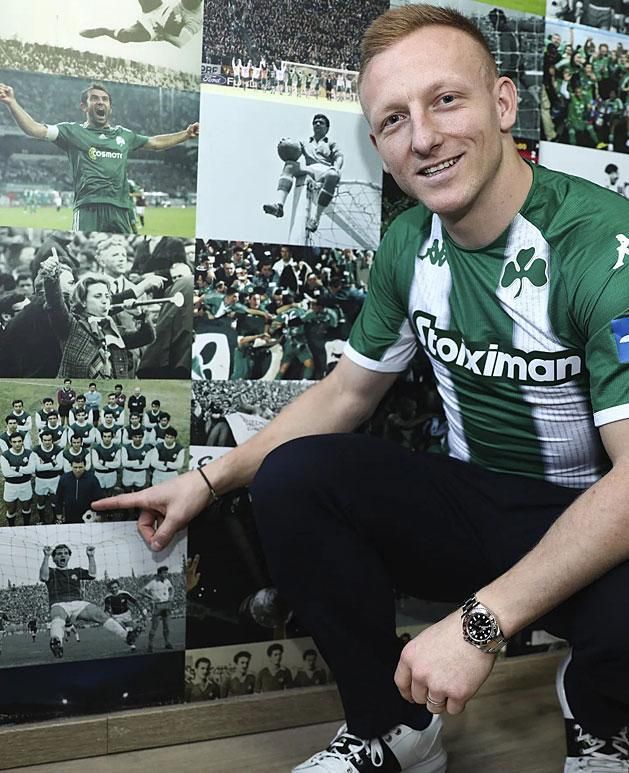
– Do you have a Greek name, like Gyula Loránt's was Lorantidis? How about Kleisthenes? – No, no, I don't know about that yet – says László Kleinheisler, laughing. – But it's already common knowledge here that my nickname is Scholes because of my similar appearance to the former Manchester United midfielder, so here I'm called Scholesy. I think I'm settling in well; I'm having a great time here. I have Croatian and Slovenian teammates and an Albanian, Enis Cokaj, who also played in the Croatian league. I found a common ground with them straight away.
– How did the opportunity to transfer to Athens in January come about? – Everything happened very quickly. With only a few days left of the winter transfer period, my agent Vladan Filipovic called me and said there was this opportunity. The club wanted me, the coach wanted me, and I didn't have to think too much: I said yes immediately, and we were on the plane the next day. I was very happy to be at such a prestigious club, it is a great opportunity.
– I see your family doesn't mind the change either. – Not at all, we already love living here, and as the summer comes, it will be even better. My wife is Croatian, but she had no problem coming here either. Our son Noel is five months old, and my wife's daughter from her first marriage (bottom picture on page 2 – the editor) also lives with us. We live in Glyfada, a beautiful area. Although it's a suburb, it's more like a city center, so we're looking for a single-family home because I have a little French bulldog and he'd be better off running around in the backyard.
– Was it also motivating to fight for the title? It was the same in Osijek, but it is almost impossible to beat Dinamo Zagreb there. – Yes, it was very motivating for me and the team. I have a Hungarian league title with Videoton and a Hungarian Cup win with Fradi, but it would be a great feeling to be a Greek champion. I can imagine what the celebration would look like here after thirteen years of waiting. The league is not over yet, the playoffs are just starting, with the top six teams all playing each other twice. Every game is a derby, and everything is decided in those ten games.
– Is the pace different from the Hungarian or Croatian leagues? – Yes, I think it is much faster. When I came here, the first training session was quite hard, it was very intense. The pace of the game is also similar to the national team games. It's good because I can use it in the national team, I'll have more strength. The training sessions are very good; I recently trained with the second team, and it was very fast. What's very important is that the quality of the training pitches is excellent, the grass is perfect, which also helps to play fast.
– We have the feeling that Greece will appreciate the fighting spirit that characterizes your game. – I hope so because I have always been like that. I believe that when the game is not going the way I want it to, I can always pick myself up if others see me fighting for every ball. Sometimes things don't work out, we can lose, but if we fight hard, no one can say anything bad, neither the coach nor the fans.
– Who is the ace on the team? Andraž Šporar, the Slovenian forward? – He's good, but so is former Brazilian national team player Bernard and Argentinian national team player Sebastián Palacios. He is very quick and dangerous.
– So far, it looks like you will have to battle with the two Argentine wingers, Daniel Mancini and Sebastián Palacios for a starting spot. – We've usually substituted each other, but it's not always the case because I can play behind the midfield, so there are more variations. I'm concentrating on myself: the important thing is to get back to my best fitness level and then one of the starting positions could be mine. The left wing is probably the one that suits me the best, I like playing there, and it's where I've had the most chances in Osijek, too. Of course, I can also imagine that we will rotate positions, even within a match.
– You're twenty-eight years old and your contract is for three and a half years. Have you found your place, is this where you're going to reach the top? – We don't know what the future brings us. I've already been at a couple of good teams, to name just two of my former green-and-white clubs Werder and Fradi. I am proud of what I have achieved so far. Why shouldn't I be proud? I've already gained a lot of experience abroad, and all I can say is that I want to stay here as long as possible and achieve even more good results.
– You will be going home soon to join the national team. What kind of performance do you expect in the qualifiers for the European Championship? – There are no opponents of big names, but our group is not easy with Serbia, Montenegro, Bulgaria, and Lithuania. The rivals are expected to be mainly defensive as the Hungarian national team already has a lot of respect. I am confident, in fact, I am sure we can achieve good results; in recent years, we have shown what we are capable of. We are looking forward to the matches, and before the qualifier against the Bulgarians, we will have the opportunity to experiment against the Estonians, to get even used to each other more, which will help us to get in the right mood for the matches. |
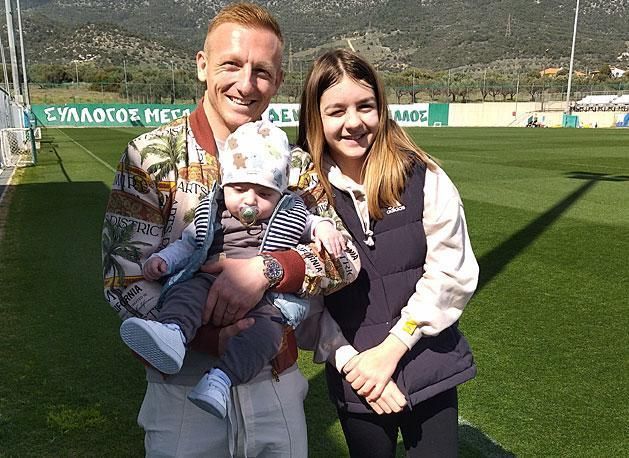
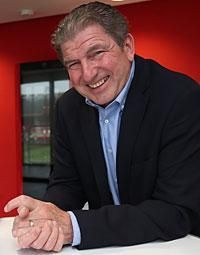
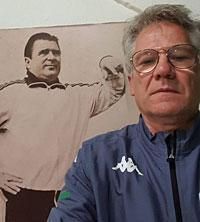
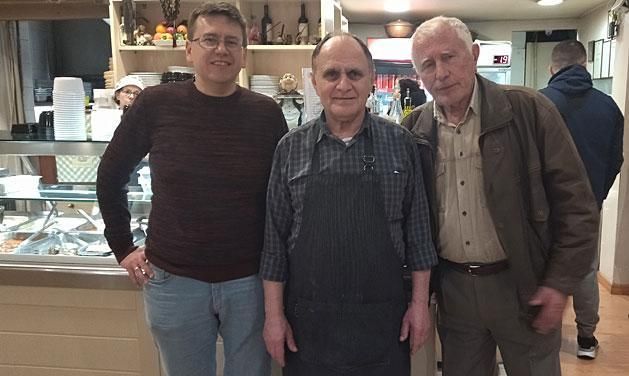
For our wanderings in Athens, we could not have had a better "tour guide" than 85-year-old Nikos Sakulis (right), a former Greek interpreter, colleague and good friend of Ferenc Puskás. When Sakulis was informed about our arrival, he went above and beyond what could be expected of a "host," being almost embarrassingly helpful: He offered accommodation, drove us to and from the airport (which was a "lifesaver" on the day of the strike announced a few weeks ago due to the tragic Greek train accident, which caused the complete shutdown of public transport), contacted the club and the consulate, and even invited us to the favorite restaurant, the Alekos Tavern, of Ferenc Puskás' wife, Mrs. Erzsébet. "What else can I do? I love Hungarians," he modestly explained his unselfish help. But he did not learn Hungarian of his own free will: he was kidnapped at the age of eight by partisans along with all the children in his home village, and he came to Fehérvárcsurgó, Hungary when he was ten years old. He will give a lecture there on April 23 about his war years, and his life story will soon be published in a book, too. He graduated from high school in Csongrád, took an active part in the Revolution of 1956, and after it failed, he returned to his homeland where saw his mother and never his father – he passed away in a communist prison. The physiotherapist worked not only with Ferenc Puskás but also with fifteen other Hungarian coaches, including Márton Bukovi and Mihály Lantos. On the Greek side, he managed the Puskás memorial plaque, which was inaugurated in 2014. Last year he was awarded the Knight's Cross of the Order of Merit of Hungary by Prime Minister Viktor Orbán. He has also been a Hungarian citizen for years, and so are his two daughters now. |
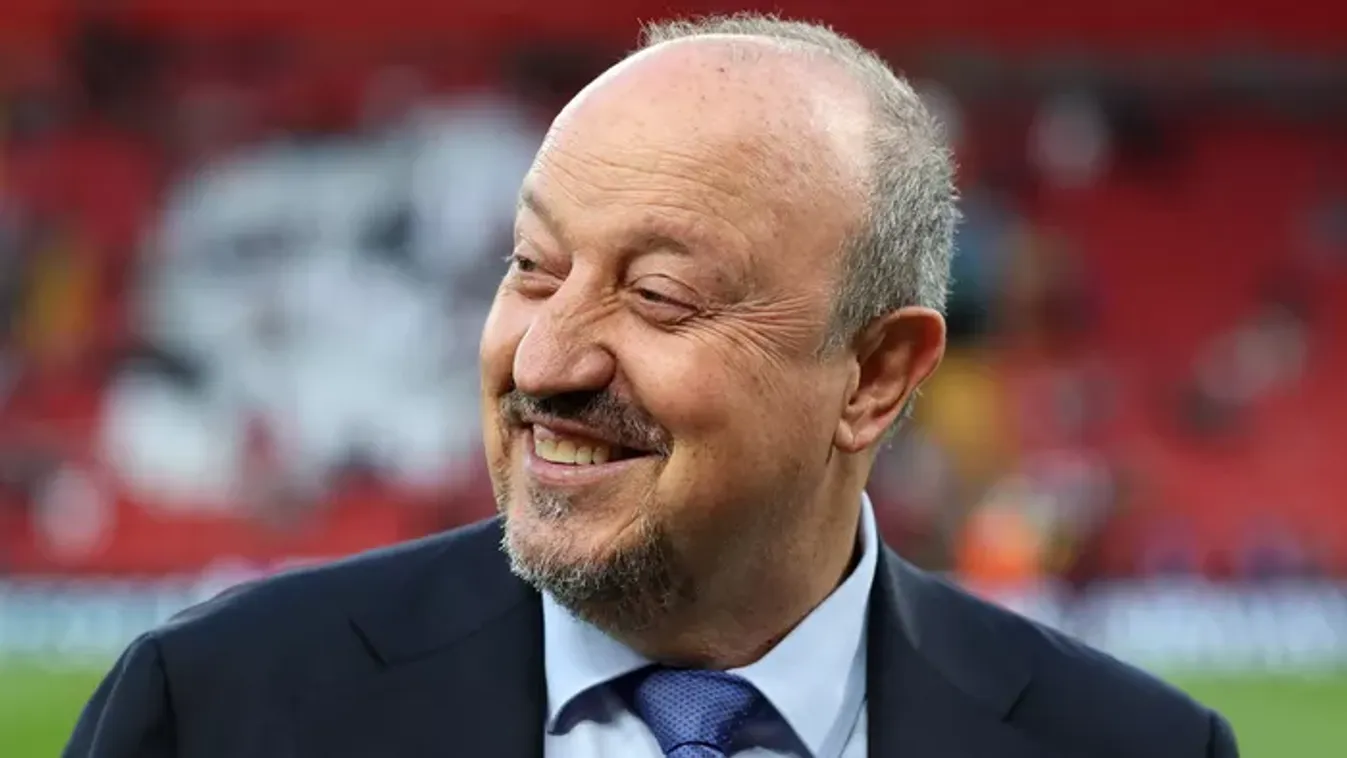
Görög óriásklub vezetőedzője lett Rafa Benítez
